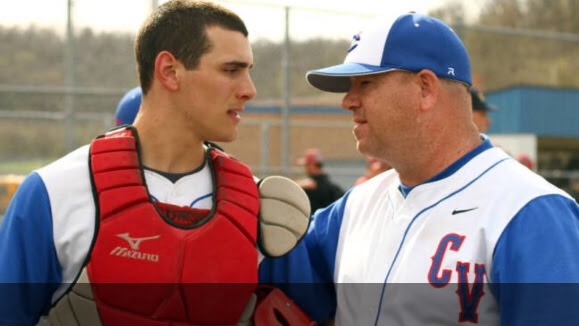Curt Cairns – Chartiers Valley High School
“These are good kids, so it’s tempting to just assume that everyone is doing the right thing and making the right decisions. But unless you talk to them, you don’t know what’s really happening in their lives. You’ve got to ask. You’ve got to have these conversations.”
Curt Cairns is in his second season as head baseball coach at Chartiers Valley High School, but he’s been coaching in the district for the past 20 years. “I’ve seen it all,” he laughs. He was eager to bring Coaching Boys Into Men (CBIM) to his team last year at the request of school administrators. “The coaches knew that they needed to talk to our guys about some sensitive issues. The program’s been a great tool for doing that. It helps kids develop a moral compass. It helps them to focus and stay out of trouble.”
Curt’s players weren’t shy in CBIM sessions. “They’re comfortable with me and the coaching staff. Coaches walk a fine line of respect with their players. We’re their mentors, not their friends.” CBIM conversations can be candid because they’re private, even in a group setting, and are exploratory rather than confrontational. “These are confidential talks, and no one outside the confines of your team is going to know what’s been said.” That sense of safety comes from the trust the players have in their coaches and in each other. “That’s the sign of a good team,” Curt says.
The athletes have turned around potentially troubling behaviors since the district implemented CBIM. Some are getting better grades, and they’re using better judgment on social media. “That component of the program is invaluable,” Curt says. “When I grew up there was no social media or internet. Now things can get awfully messy, awfully quick.” According to Curt, the biggest plus of all is that CBIM helps kids internalize concepts that improve all areas of their lives. “It’s about more than baseball or how you behave at a party. It’s a great program that helps to point our kids in the right direction in their decision making. Thinking before you act and understanding the ramifications of taking the wrong path helps kids in everything they do.”

